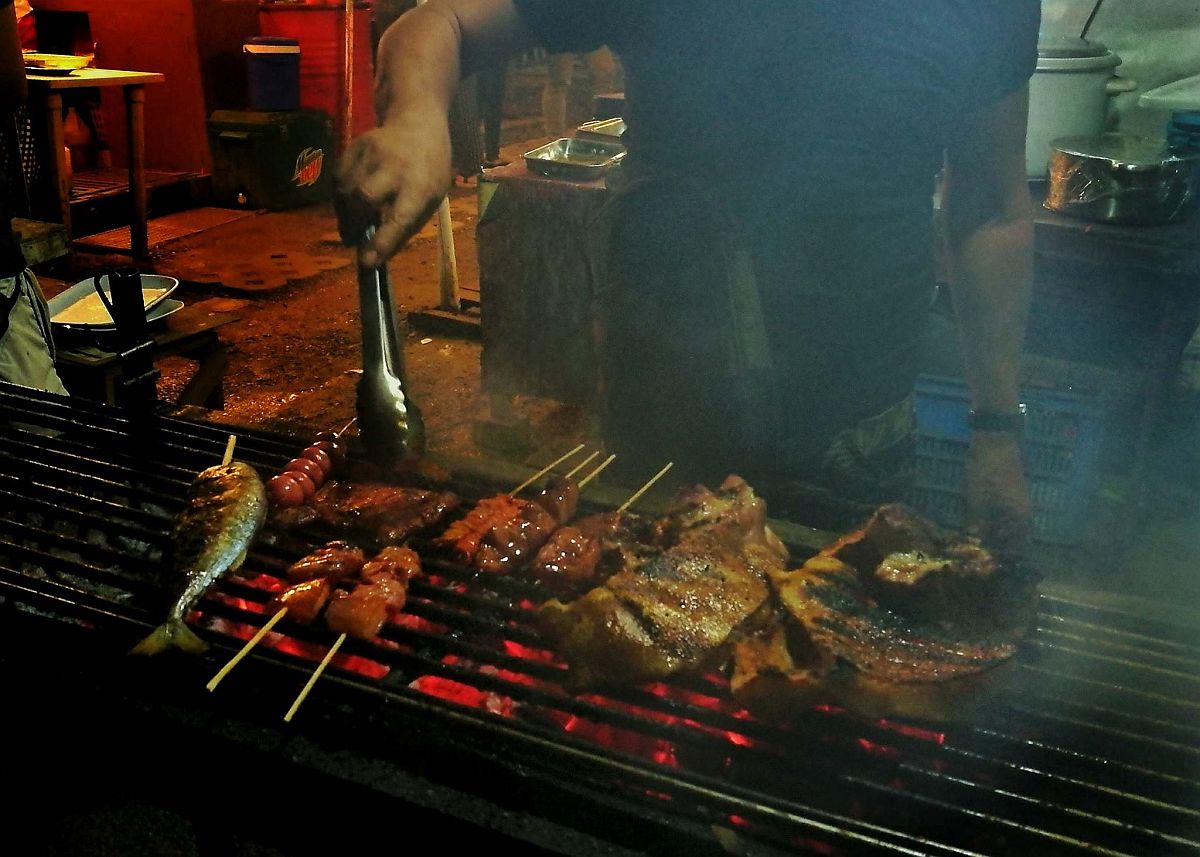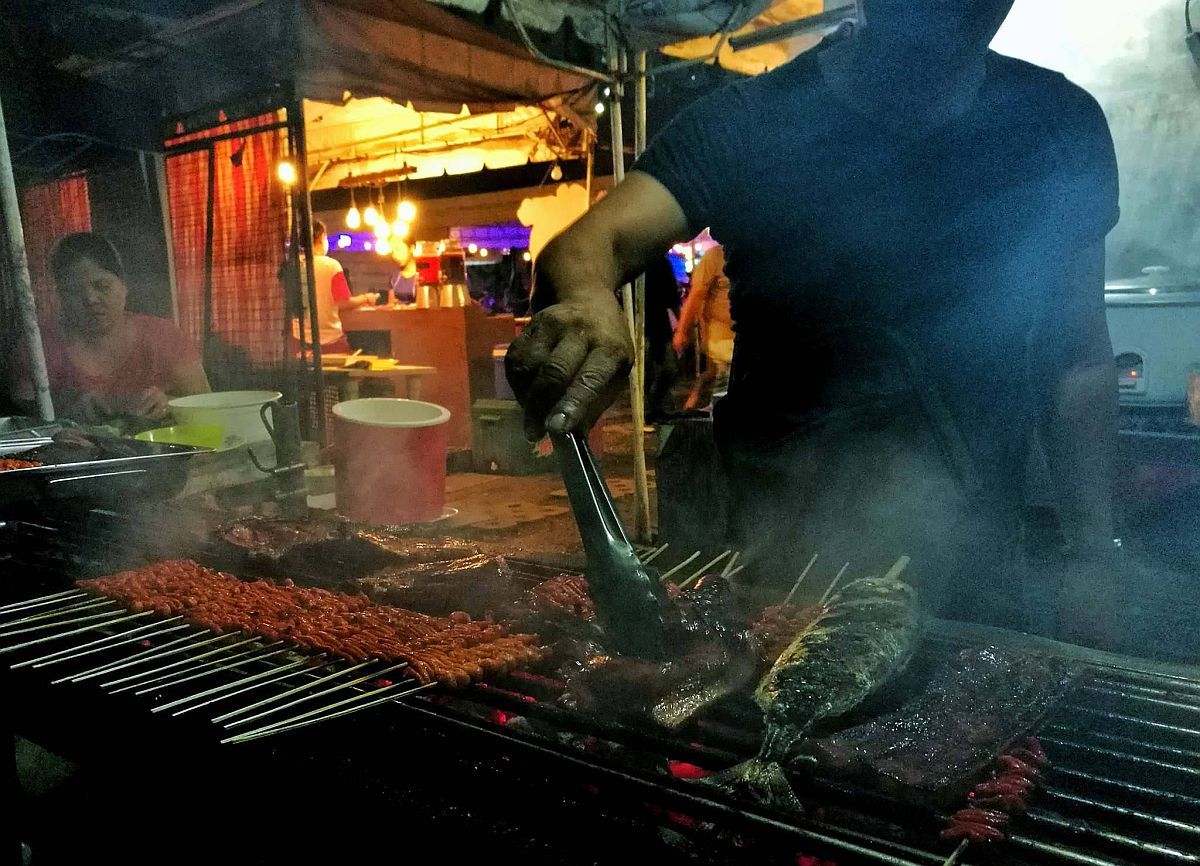
Barbecuing, the closest thing to spit-roasting, the oldest cooking method known to man. (CDN PHOTO/XAVIER SOLIS)
IN THE beginning there was fire.
Even before there was the word.
It happened before language, agriculture, civilization, and culture.
Fire provided light, warmth and protection for early humans to survive life in the forests, in the wild.
But it took long for them to master it.
Some 600,000 years ago, in the Lower Paleolithic, our closest ancestors Homo erectus figured out how to create fire and learned the controlled use of it.
But the most pivotal point in human evolution happened, when 100,000 years or so after, the primitive man learned to cook over fire. (Some scholars say cooking happened even before that, despite the lack of sufficient evidence.)
Eating cooked food must have transpired by accident for them: they may have first savored some roast meat of some wild beast left after a forest fire, and found them to be more palatable and easier to chew than raw meat.
In his book “Catching Fire: How Cooking Made Us Human,” Richard Wrangham, an evolutionary anthropologist and primatologist at Harvard, postulates that the controlled use of fire and cooking food led to the creation of the H. erectus that eventually evolved to become the modern man. “Homo erectus is the ape that has become human,” he says.
“It is the species that signals our departure from an ape ancestry into the modern type of anatomy.”
He attributed to the consistent consumption of cooked food how our anatomy evolved from that of the great ape (with bigger jaws, a long tooth row, and capacious gut): the morphology sees, from Homo habilis to H. erectus, a large reduction in the size of the mouth, teeth, and jaws. Muscles for chewing became weaker.
Most importantly, cooking was the key factor in the huge increase in brain size and cranial capacity in H. erectus. Wrangham explains, “The brain is a hungry organ. It needs a tremendous amount of energy. Between increasing the proportion of the food that is actually digested and allowing you to digest it with much less physical work, cooking gives you more energy. The Homo erectus is the species that is somehow adapted to eating relatively soft food.”
Primates spend at least 42 percent of the day on chewing
. That means more than 5 hours a day over a 12-hour period.
Thus, on a raw diet, if the primordial man did not learn how to cook, almost half of our waking time would have been devoted to chewing, leaving little time for other activities such as hunting and gathering.
“If you are thinking about human evolution,” Wrangham argues, “you’re thinking about hunters and gatherers, then cooking is absolutely vital, because on a raw diet, we have no evidence that anybody actually can survive in the wild.”
Our species’ survival in the natural selection, thus, depended on our ability to control fire, and to cook.
As food is transformed when we cook over fire, our consumption of cooked food leads to the transformation of our human anatomy and human life, in general.
Because we spend less time on chewing, we learn to use our time and spend our days, and create a role-playing economic social structure, where the male goes out all day to hunt for food, while the female stays behind at camp, preparing, cooking, and guarding the food.
We start to cooperate, and communicate, and develop social skills to gather around campfire (as a source of heat during cold nights), and tell stories while food is being cooked.
We are the only species that cook.
Cooking makes us who we are.
Cooking makes us human.


